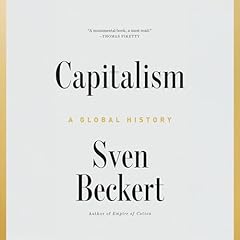
Economics for the Common Good
No se pudo agregar al carrito
Add to Cart failed.
Error al Agregar a Lista de Deseos.
Error al eliminar de la lista de deseos.
Error al añadir a tu biblioteca
Error al seguir el podcast
Error al dejar de seguir el podcast
Prueba gratis de 30 días de Audible Standard
Compra ahora por $24.94
-
Narrado por:
-
Jonathan Davis
From Nobel Prize-winning economist Jean Tirole, a bold new agenda for the role of economics in society.
When Jean Tirole won the 2014 Nobel Prize in Economics, he suddenly found himself being stopped in the street by complete strangers and asked to comment on issues of the day, no matter how distant from his own areas of research. His transformation from academic economist to public intellectual prompted him to reflect further on the role economists and their discipline play in society. The result is Economics for the Common Good, a passionate manifesto for a world in which economics, far from being a "dismal science," is a positive force for the common good.
Economists are rewarded for writing technical papers in scholarly journals, not joining in public debates. But Tirole says we urgently need economists to engage with the many challenges facing society, helping to identify our key objectives and the tools needed to meet them. To show how economics can help us realize the common good, Tirole shares his insights on a broad array of questions affecting our everyday lives and the future of our society, including global warming, unemployment, the post-2008 global financial order, the euro crisis, the digital revolution, innovation, and the proper balance between the free market and regulation. Providing a rich account of how economics can benefit everyone, Economics for the Common Good sets a new agenda for the role of economics in society.
Download the accompanying reference guide.©2017 Princeton University Press (P)2018 Audible, Inc.Los oyentes también disfrutaron:




















Las personas que vieron esto también vieron:



Importantly, Tirole identifies the paramount importance of nuance when discussing economic policy decisions, and approaches the critique of his own discipline from a highly empirical and self-critical standpoint. Ultimately, his overview of economics is sensible and well-grounded, non-dogmatic, -and most importantly-, careful to identify areas in which economics can be used to make the world a better place.
On top of this, the narrative performance by Jonathan Davis is decent enough, however, I would recommend also following along closely with the accompanying PDF if you are to get the most out of this book.
If you are looking for one book providing a well-informed critique of modern economics that is accessible to both professional economists and laypeople alike, then this is the title for you.
A Great Overview of the Challenges of Modern Econ
Se ha producido un error. Vuelve a intentarlo dentro de unos minutos.
Must read for all responsible citizens
Se ha producido un error. Vuelve a intentarlo dentro de unos minutos.
Encourages lack of responsibility for actions
Se ha producido un error. Vuelve a intentarlo dentro de unos minutos.


